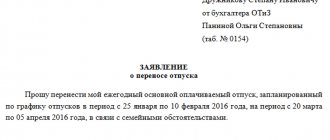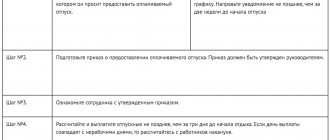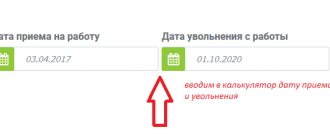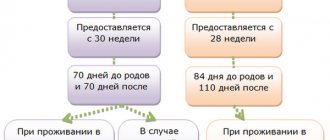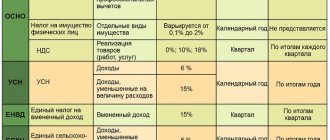Vacation - everyone has a right
The duration of the vacation is determined by the Labor Code of the Russian Federation. Most of those who work officially receive 28 calendar days of rest annually. All vacation days are paid by the employer.
Not only those employees who are permanently employed by the enterprise have the right to 4 weeks of rest. Other employees can also count on vacation. It refers to:
- part-time workers;
- who has concluded an employment relationship with the employer under a fixed-term contract;
- seasonal workers;
- homeworkers and those who work remotely.
The duration of the vacation period includes calendar days, including weekends. But if this period of time includes an idle non-working day, then it is not paid. It is not included in the duration of the vacation.
Article 335 of the Labor Code of the Russian Federation. Long-term leave for teaching staff (current version)
1. The labor rights of teaching staff include the right to long leave for a period of up to one year at least every 10 years of continuous teaching work in the manner established by the federal executive body exercising the functions of developing state policy and legal regulation in the field of education , which is provided for in Art. 47 of the Education Law.
2. The procedure and conditions for granting long leave for a period of up to one year to teaching staff of educational organizations, the founder of which is the Ministry of Education of Russia or in respect of which the Ministry of Education of Russia exercises the powers of the founder, are established in the Regulations on the procedure and conditions for granting teaching staff of educational institutions long leave for a period of up to one year , approved Order of the Ministry of Education of Russia dated December 7, 2000 N 3570.
3. The period of continuous teaching work, which gives the right to a long vacation, includes the time spent working in the relevant educational organizations, in positions and under the conditions provided for in the annex to the said Regulations.
The length of continuous teaching experience is established in accordance with entries in the work book or on the basis of other properly executed documents.
The length of continuous teaching work that gives the right to long leave includes:
- actual time worked;
- the time when the teaching employee did not actually work, but he retained his place of work (position) and salary in full or in part (including the time of paid forced absence in case of improper dismissal or transfer to another job and subsequent reinstatement);
— the time when a teaching employee underwent practical training in paid teaching positions during the period of study in educational organizations of secondary and vocational education and higher education, graduate school and doctoral studies;
- the time when the teaching worker did not actually work, but he retained his place of work (position) and received state social insurance benefits, with the exception of the time when the teaching worker was on partially paid leave and received child care benefits until he reached the age of age 1.5 years.
4. The Regulations provide for cases when the length of continuous teaching work is not interrupted if the break in work does not exceed a certain period.
Thus, the length of service is not interrupted when an employee moves in the prescribed manner from one educational institution to another, if the break in work does not exceed one month.
The length of service is not interrupted if the break in work does not exceed two months, when entering a teaching job after dismissal from teaching after the expiration of the employment contract of persons who worked in the Far North and equivalent areas, as well as when entering a teaching job after release from working in their specialty in Russian educational institutions abroad.
If the break in work does not exceed three months, then the length of continuous work is not interrupted in the following cases:
- when entering a teaching job after dismissal from educational authorities in connection with the reorganization or liquidation of these bodies, staff reduction, provided that work in educational authorities was preceded by teaching work;
- when entering a teaching job after dismissal due to the liquidation of an educational institution, reduction in the staff of teaching staff or its number;
- when entering a teaching job after dismissal from teaching due to a disability determination (the three-month period in these cases is calculated from the date of restoration of working capacity);
- when entering a teaching job after dismissal from teaching due to a discovered inconsistency of the employee with the position held or the work performed due to health reasons (according to a medical report), which prevents the continuation of this work.
The length of teaching work experience is not interrupted when entering a teaching job after dismissal from military service or equivalent service, if the service was immediately preceded by teaching work, and the break between the day of dismissal from military service or equivalent service and the day of entry into work did not exceed three months. , as well as when entering a teaching job after graduating from a higher or secondary pedagogical educational institution, if studying at the educational institution was immediately preceded by teaching work, and the break between the day of graduation from the educational institution and the day of entry to work did not exceed three months.
Regardless of the break in work, the teaching experience is not interrupted when entering a teaching job after leaving the teaching job at one's own request due to the transfer of the husband (wife) to work in another locality.
In addition, the teaching experience is not interrupted when entering a teaching position after voluntarily leaving due to retirement.
When moving from one teaching job to another due to a change in place of residence, the break in work is extended by the time necessary for the move.
5. Long leave may be granted to a teaching staff at any time, provided that this does not adversely affect the activities of the educational organization.
6. A teaching worker on long-term leave is retained his place of work (position) in accordance with the established procedure.
7. For a teaching worker on long-term leave, the teaching load is maintained in accordance with the established procedure (i.e., when returning from a long leave, the volume of the teaching load remains the same), provided that during this time the number of hours in the curriculum and programs has not decreased or number of study groups (classes).
8. During a long vacation, the transfer of a teaching employee to another job, as well as his dismissal at the initiative of the employer, is not allowed, with the exception of the complete liquidation of the educational institution.
9. For a teaching employee who falls ill while on long-term leave, the long-term leave is subject to extension by the number of days of incapacity for work certified by a sick leave certificate, or, by agreement with the employer, is postponed to another period.
Long leave is not extended or postponed if the teaching employee was caring for a sick family member during the specified period of time.
10. The order and time of granting long leave, duration, inclusion in annual paid leave, the possibility of paying for long leave at the expense of extra-budgetary funds and some other issues are determined by the charter of the educational organization.
11. The list of positions in which work is counted towards the experience of continuous teaching work is an appendix to the said Order and contains, firstly, a list of positions in which the time of work is counted towards the experience of continuous teaching work, regardless of the volume of teaching work, and secondly , a list of positions, the time of work in which is counted towards the experience of continuous teaching work, provided that the teaching staff performs teaching work in each academic year in these positions (both with and without occupying a full-time position) in the following amount:
- at least 150 hours - in organizations of higher education and relevant additional professional education;
- at least 240 hours - in organizations of secondary vocational education and corresponding additional vocational education;
- at least 6 hours a week in general education and other educational organizations.
Comment source:
Rep. ed. Yu.P. Orlovsky “COMMENTARY ON THE LABOR CODE OF THE RUSSIAN FEDERATION”, 6th edition ACTUALIZATION
ORLOVSKY Y.P., CHIKANOVA L.A., NURTDINOVA A.F., KORSHUNOVA T.YU., SEREGINA L.V., GAVRILINA A.K., BOCHARNIKOVA M.A., VINOGRADOVA Z.D., 2014
What is extended leave?
The Labor Code establishes not only the standard duration of leave. The right to provide employees with more days of rest each year is provided. Their number ranges from 30 to 56. The specific number is determined by the Labor Code of the Russian Federation and other federal laws. Leave that exceeds 28 days in duration is called “extended main leave.”
Important! Only certain categories of employees and those who occupy certain jobs can count on extended leave. .
When can a new employee take time off?
But here, too, exceptions are possible. The above procedure does not apply to:
- persons under 18 years of age;
- citizens who have adopted babies under three months;
- women in the period immediately before and after pregnancy and childbirth.
Further, starting from the second year of work in the same organization, employees can apply for vacations at any time convenient for them, but in accordance with the priority accepted by the employer. They can also take vacation after vacation
, if this provision does not worsen the production situation.
If you find an error, please select a piece of text and press Ctrl+Enter
.
The duration of the annual basic paid leave is 28 calendar days in accordance with Article 115 of the Labor Code of the Russian Federation. This is the minimum length of the vacation period, however, some categories of employees may qualify for extended vacation, when additional days are added to the main 28 days. The article examines how many vacation days are due per year, which groups of citizens have the right to additional vacation days. How many days can annual paid leave be increased for different categories of employees?
Who can count on an extended vacation?
To obtain information about which of the employees has the right to take extended leave, you cannot do without studying the Labor Code. You should also familiarize yourself with Federal laws and other regulations.
The table contains information on the duration of extended leave for certain categories of employees:
| Categories of workers | Duration of vacation, days. | Explanation |
| Under 18 years of age | 31 | Leave is granted at the first request of the employee |
| Employees with disabilities | 30 | Relevant for all disability groups |
| Those employed in work related to chemical weapons | I group – 49 II gr. – 56 | The assignment of an employee's position to a specific group depends on the level of danger of the work performed. All information is in Federal Law No. 151 (1995) |
| Emergency rescue service and military personnel | 30 35 40 | The specific duration depends on the continuous length of service. All the information you need: here |
| Employees of the prosecutor's office, the Investigative Committee, judges, customs officers, drug police | 30 | The travel time to the vacation spot and back is not taken into account in these 30 days, it is counted separately. Vacation increases upon reaching a certain length of service |
| Employees of health care institutions who are exposed to the risk of HIV infection in their work | 36 | Applies to persons engaged in: — diagnosis and treatment of HIV-infected people; — examination of material containing HIV infection |
Important! In order not to make mistakes and set the correct vacation days, you should thoroughly study the regulatory documents.
Extended leave for working with children with disabilities
Regarding the provision of additional extended leaves, the Recommendations provide explanations on the duration of such leaves for teaching staff and heads of preschool educational organizations for working with children with disabilities (HH) or children in need of long-term treatment.
The union noted that in this case one should also be guided by Resolution No. 466.
According to the resolution, the generally established duration of the annual basic extended paid leave of teaching staff of preschool educational organizations is 42 calendar days. Vacations of this duration are granted to teaching staff of organizations in which only general developmental groups operate that implement the educational program of preschool education.
Vacations of 56 calendar days are granted to teachers if they work with children with disabilities and (or) persons in need of long-term treatment. That is, all teaching staff who are directly involved in working with such children have the right to leave of this duration.
Note:
the right to 56 days of vacation is not conditioned by the need to perform work for a full working day, as was provided for under the previous regulation (
Letter of the Ministry of Education and Science of the Russian Federation dated July 20, 2017 No. 08-PG-MON-26725
).
In addition, it is noted that in accordance with the Procedure for organizing and implementing educational activities in basic general education programs - educational programs of preschool education, approved by Order of the Ministry of Education and Science of the Russian Federation dated August 30, 2013 No. 1014, educational activities in educational programs of preschool education in an educational organization are carried out in groups, which may have the following focus:
– general developmental – they implement an educational program for preschool education; – compensatory – an adapted educational program of preschool education for children with disabilities is being implemented; – recreational – such groups are created for children with tuberculosis intoxication, frequently ill children and other categories of children in need of long-term treatment; – combined – they provide joint education for healthy children and children with disabilities in accordance with the educational program of preschool education, adapted for children with disabilities.
Regarding teaching staff, the trade union noted that employees working with children with disabilities not only in compensatory groups, but also in groups that are part of combined groups have the right to leave of 56 calendar days.
The duration of extended leave for heads of preschool educational organizations is determined depending on which groups function in the organization. In particular:
– heads of preschool educational organizations, in which either only general developmental groups, or along with them compensatory, health-improving or combined ones, can function, are granted leave of 42 calendar days (clauses 2 and 3 of section I of the appendix to Resolution No. 466); – heads of organizations directly created only for children with disabilities and (or) for people in need of long-term treatment are granted leave of 56 calendar days (clauses 5 and 6 of section I of the appendix to Resolution No. 466).
In general education organizations, leave of 56 calendar days is granted to teachers and music directors of preschool groups working with students with disabilities and (or) persons in need of long-term treatment. At the same time, work with students with disabilities can also be carried out in groups with a combined focus.
For your information:
the status of a student with disabilities, which gives the right to leave of 56 calendar days, is established by the psychological, medical and pedagogical commission. At the same time, there is no exhaustive list of grounds for which students are recognized as persons with disabilities, and the commission decides to issue a conclusion collectively, taking into account the special educational needs of students and the individual development situation.
Features of providing extended leave to education workers
Leave for workers engaged in practical or theoretical educational activities has always been longer than standard. According to modern legislation, these employees receive rest time of the following duration:
| Employees | Duration of vacation, days. | Explanation |
| Working in preschool and general education institutions, additional education organizations | 42 or 56 | The number of days depends on the employee’s position and the type of educational organization where he works. full information |
| Candidates of Science Doctors of Science | 36 48 | Working days are counted, not calendar days. Scientists work on the staff of research organizations funded from the federal budget: see here |
Important! For employees of scientific government institutions with scientific degrees, extended leave is taken not on calendar days, but on working days.
Extended annual basic paid leave
Annual basic paid vacations, the duration of which exceeds 28 calendar days, are called extended basic vacations (Part 2 of Article 115 of the Labor Code of the Russian Federation).
For some categories of employees, the legislation establishes the duration of extended annual basic paid leave:
— employees under 18 years of age are granted leave of 31 calendar days (Article 267 of the Labor Code of the Russian Federation);
Leave of minor workers
— working disabled people (regardless of the disability group) are entitled to basic paid leave of at least 30 calendar days (Article 23 of Law No. 181-FZ). This norm is mandatory for compliance by all organizations, regardless of their legal form and form of ownership;
— teaching staff are provided with annual basic extended paid leaves of a duration established by the Government of the Russian Federation. This follows from Art. 334 of the Labor Code of the Russian Federation and clause 3, part 5, art. 47 Federal Law dated December 29, 2012 N 273-FZ;
Vacation of teaching staff
Continuation of the list
— workers engaged in work with chemical weapons are granted leave of 56 and 49 calendar days (depending on the group of work with chemical weapons) (Article 5 of the Federal Law of November 7, 2000 N 136-FZ “On the social protection of citizens employed in working with chemical weapons"). This category includes citizens working with chemical weapons under an employment agreement (contract), military personnel of the Armed Forces of the Russian Federation, employees of internal affairs bodies, the State Fire Service, as well as persons who received occupational diseases as a result of the above work;
— Doctors of Science are entitled to leave of 48 working days (Resolution of the Government of the Russian Federation of August 12, 1994 N 949). Such leaves may be provided by scientific institutions (organizations) financed from the federal budget. Employees of such institutions (organizations) must occupy full-time positions, academic degrees for which are provided for by tariff and qualification requirements;
— candidates of sciences are entitled to leave of 36 working days (Resolution of the Government of the Russian Federation of August 12, 1994 N 949). Such leaves may be provided by scientific institutions (organizations) financed from the federal budget. Employees of such institutions (organizations) must occupy full-time positions, academic degrees for which are provided for by tariff and qualification requirements;
— state civil servants are granted leave of 30 or 35 calendar days depending on the position held (Article 46 of the Federal Law of July 27, 2004 N 79-FZ “On the State Civil Service of the Russian Federation”);
— employees of healthcare organizations diagnosing and treating HIV-infected people, as well as employees of organizations whose work involves materials containing the human immunodeficiency virus, are entitled to leave of 36 working days (taking into account the annual additional leave for work in hazardous working conditions ), i.e. the extended leave also includes additional leave for work in working conditions hazardous to health (Resolution of the Government of the Russian Federation of 04/03/1996 N 391);
— prosecutors, scientific and teaching staff of the prosecutor’s office of the Russian Federation are granted leave of at least 30 calendar days (Article 41.4 of the Federal Law of January 17, 1992 N 2202-1 “On the Prosecutor’s Office of the Russian Federation”);
— employees of the Investigative Committee are granted leave of at least 30 calendar days (Article 25 of the Federal Law of December 28, 2010 N 403-FZ “On the Investigative Committee of the Russian Federation”);
— customs officials are granted leave of 30 calendar days (Article 36 of Federal Law No. 114-FZ of July 21, 1997 “On Service in the Customs Authorities of the Russian Federation”);
— judges are entitled to leave of at least 30 working days (clause 2 of article 19 of the Law of the Russian Federation of June 26, 1992 “On the status of judges in the Russian Federation”, clause 5 of Decree of the President of the Russian Federation of September 14, 1995 N 941);
— employees of professional emergency rescue services, professional emergency rescue teams are granted leave lasting from 30 to 40 days (Article 28 of the Federal Law of August 22, 1995 N 151-FZ “On Emergency Rescue Services and the Status of Rescuers”), etc. .
Annual basic paid vacations, the duration of which exceeds 28 calendar days, are called extended basic vacations (Part 2 of Article 115 of the Labor Code of the Russian Federation).
For some categories of employees, the legislation establishes the duration of extended annual basic paid leave:
— employees under 18 years of age are granted leave of 31 calendar days (Article 267 of the Labor Code of the Russian Federation);
Leave of minor workers
— working disabled people (regardless of the disability group) are entitled to basic paid leave of at least 30 calendar days (Article 23 of Law No. 181-FZ). This norm is mandatory for compliance by all organizations, regardless of their legal form and form of ownership;
— teaching staff are provided with annual basic extended paid leaves of a duration established by the Government of the Russian Federation. This follows from Art. 334 of the Labor Code of the Russian Federation and clause 3, part 5, art. 47 Federal Law dated December 29, 2012 N 273-FZ;
Vacation of teaching staff
Continuation of the list
— workers engaged in work with chemical weapons are granted leave of 56 and 49 calendar days (depending on the group of work with chemical weapons) (Article 5 of the Federal Law of November 7, 2000 N 136-FZ “On the social protection of citizens employed in working with chemical weapons"). This category includes citizens working with chemical weapons under an employment agreement (contract), military personnel of the Armed Forces of the Russian Federation, employees of internal affairs bodies, the State Fire Service, as well as persons who received occupational diseases as a result of the above work;
— Doctors of Science are entitled to leave of 48 working days (Resolution of the Government of the Russian Federation of August 12, 1994 N 949). Such leaves may be provided by scientific institutions (organizations) financed from the federal budget. Employees of such institutions (organizations) must occupy full-time positions, academic degrees for which are provided for by tariff and qualification requirements;
— candidates of sciences are entitled to leave of 36 working days (Resolution of the Government of the Russian Federation of August 12, 1994 N 949). Such leaves may be provided by scientific institutions (organizations) financed from the federal budget. Employees of such institutions (organizations) must occupy full-time positions, academic degrees for which are provided for by tariff and qualification requirements;
— state civil servants are granted leave of 30 or 35 calendar days depending on the position held (Article 46 of the Federal Law of July 27, 2004 N 79-FZ “On the State Civil Service of the Russian Federation”);
— employees of healthcare organizations diagnosing and treating HIV-infected people, as well as employees of organizations whose work involves materials containing the human immunodeficiency virus, are entitled to leave of 36 working days (taking into account the annual additional leave for work in hazardous working conditions ), i.e. the extended leave also includes additional leave for work in working conditions hazardous to health (Resolution of the Government of the Russian Federation of 04/03/1996 N 391);
— prosecutors, scientific and teaching staff of the prosecutor’s office of the Russian Federation are granted leave of at least 30 calendar days (Article 41.4 of the Federal Law of January 17, 1992 N 2202-1 “On the Prosecutor’s Office of the Russian Federation”);
— employees of the Investigative Committee are granted leave of at least 30 calendar days (Article 25 of the Federal Law of December 28, 2010 N 403-FZ “On the Investigative Committee of the Russian Federation”);
— customs officials are granted leave of 30 calendar days (Article 36 of Federal Law No. 114-FZ of July 21, 1997 “On Service in the Customs Authorities of the Russian Federation”);
— judges are entitled to leave of at least 30 working days (clause 2 of article 19 of the Law of the Russian Federation of June 26, 1992 “On the status of judges in the Russian Federation”, clause 5 of Decree of the President of the Russian Federation of September 14, 1995 N 941);
— employees of professional emergency rescue services, professional emergency rescue teams are granted leave lasting from 30 to 40 days (Article 28 of the Federal Law of August 22, 1995 N 151-FZ “On Emergency Rescue Services and the Status of Rescuers”), etc. .
How to arrange an extended vacation
The sequence for registering an extended vacation is standard:
- Write a statement addressed to the manager. Indicate in it the start date of the vacation and the number of days (if the vacation is taken in parts).
- Submit the application to the HR officer. If the numbers correspond to the vacation schedule, the document will be sent to the manager.
- When the employer endorses the application, an order is issued to grant leave.
- The employee reads the order and puts his signature on it.
- The accountant receives a copy of the order and calculates the vacation pay.
- The employee is given the amount at the cash desk, or it is credited to his bank card.
Important! Vacation pay is paid to the employee no later than 3 days before the vacation.
Features of dividing an extended vacation into parts
Employees who take longer vacations than usual have the right not to use all their vacation days at once. They can be divided into several components by fulfilling the following conditions:
- The duration of one part of the vacation is at least 14 days.
- Consent of both parties.
The number of vacation days is calculated depending on the employee’s period of work in the organization.
An employee has the right to basic leave after six months of continuous work. The employer is not prohibited from:
- provide annual holidays in advance;
- invite the employee to use only those vacation days that have already been “earned.”
Example. The university professor worked for six months and applied for leave. An employer can, without fear of overpayment of vacation pay, provide a subordinate with the following number of vacation days:
56 days/2 = 28 calendar days.
But the rector has the right not to deny the professor leave in advance, unless this negatively affects the educational process and the work of the university as a whole.
Splitting and transferring leave
It is possible to grant leave in parts. The division of vacation is carried out by agreement between the employee and the employer, and at least one of the parts of the vacation must last at least 14 calendar days (Article 125 of the Labor Code of the Russian Federation).
Also, by agreement between the parties to the employment contract, vacation may be postponed in cases where:
- the employee was not notified of the start of vacation two weeks before it began;
- The employee was not paid vacation pay on time.
Some questions and answers
Question No. 1. The head of a department in a scientific organization has a scientific degree of Candidate of Sciences. How long is his vacation?
Answer. An employee can count on 48 working days of vacation.
Question No. 2. The manager of the enterprise is a disabled person of the 3rd group. He worked for 11 months and applied for leave for 30 days. Management insists he can only claim 28 cal. days. Who is right?
Answer. Working disabled people, regardless of disability group, receive extended leave - 30 calendar days. Therefore, management will violate the law if it gives its employee 2 less days. Read more here
